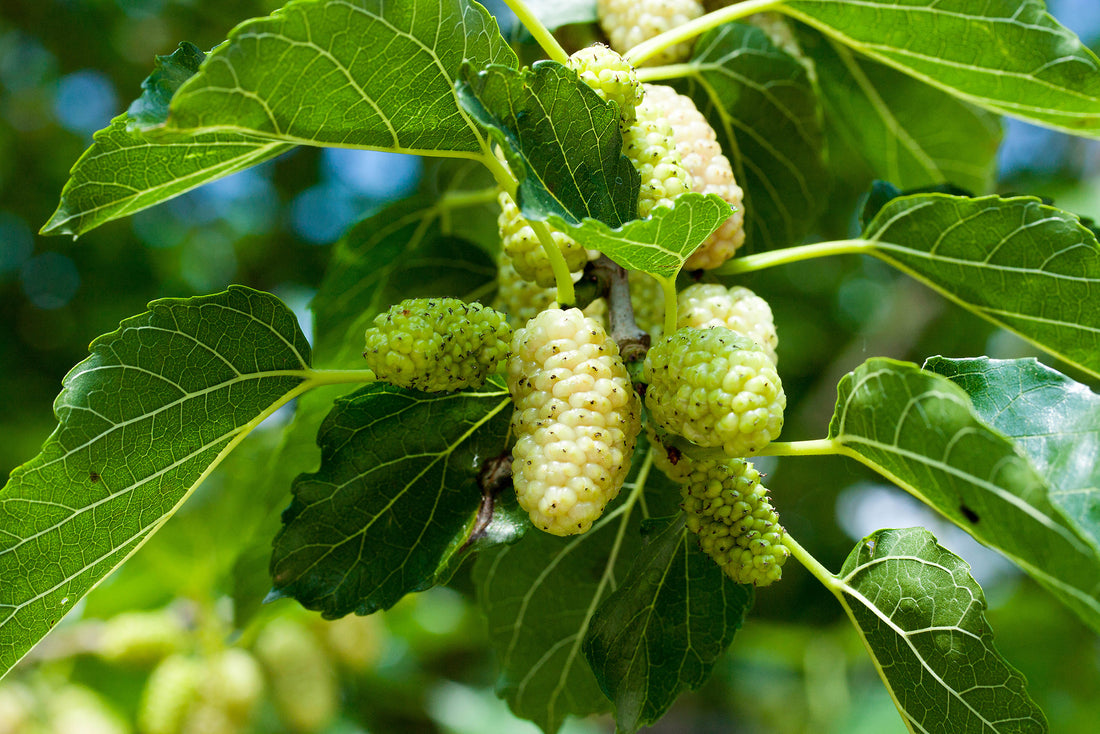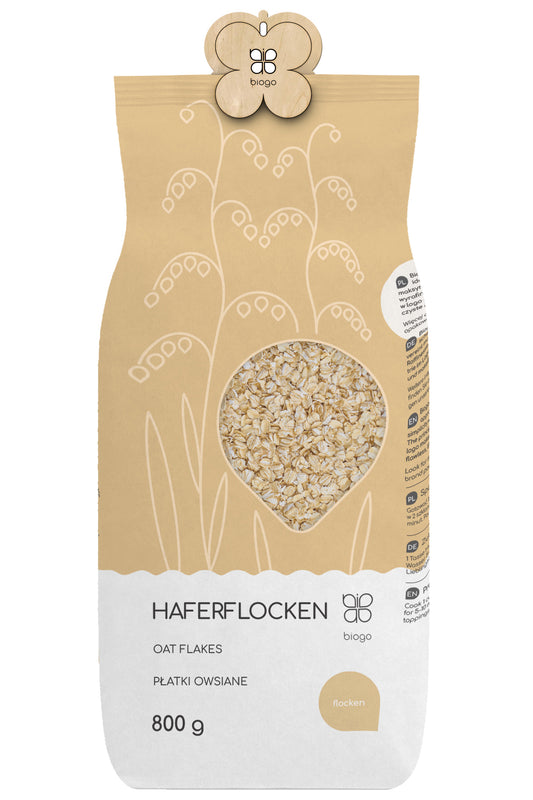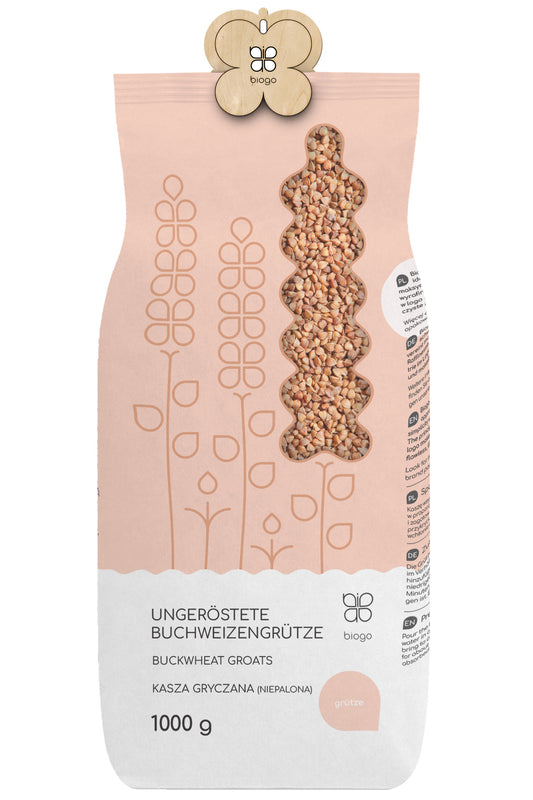White mulberry: Does it help with diabetes? What you should know about this local "white gold."
- White Mulberry - Description of the plant
- What health-promoting ingredients does white mulberry contain?
- Fruit of the white mulberry
- White mulberry leaves
- The influence of white mulberry on the body's carbohydrate metabolism
- White mulberry and lipid profile
- What else affects the white mulberry?
- White mulberry - contraindications for use
- Summary
- Bibliography
The white mulberry is a plant whose health-promoting properties have been confirmed by numerous extensive scientific studies. Although its original habitat was not Poland, it is worth noting that the white mulberry is a widespread species in our country. We can find it both raw and dried, which is by far the most popular – for sale. Let us add that the fruits of this tree are extremely tasty, which further increases its value and may encourage us to reach for them. What properties does this interesting plant have, how and for which diseases should it be used? We will provide answers to these and other questions in this text.
White Mulberry - Description of the plant
The white mulberry comes from China. It grew wild in this vast country hundreds of years ago. Later, it became a cultivated plant, primarily for the taste of its white fruits, but not only. It quickly became apparent that the leaves of this plant were perfect breeding grounds for silkworms, which also helped in their breeding. Hence, we often come across the name "plague silkworm." The mulberry itself belongs to the mulberry species, whose representatives are mainly small deciduous trees that grow up to about 15 meters tall. With the advent of new technologies that allow people to travel the world, it has spread to other continents. Scientists estimate that it first arrived in Europe around the 11th century AD. In Poland, there is practically only the white mulberry, which, interestingly, is very often confused with the black or red mulberry. This is primarily due to the different shades of its fruit, which can contribute to these defects. However, the mulberry owes its name not to the color of its fruit, but to its bark. This is a very good way to distinguish between these varieties. Let us add that one of the first observed properties of the mulberry was its effect on accelerating the growth of children. This was discovered in China, where an infusion of the leaves and shoots of this plant was given to children whose height and weight differed significantly from those of their peers. This led to further studies and research on this tree, with truly positive results for all of us.
What health-promoting ingredients does white mulberry contain?
In commonly understood herbal medicine, both mulberry fruits and leaves are used. Due to the fact that they differ slightly in chemical composition, we will focus on the fruits first.
Fruit of the white mulberry
The fruits of this tree are usually available dried. They consist mostly of simple sugars (83 per 100 grams), but also contain protein (3 per 100 grams), as well as small amounts of all types of fat (3 per 100 grams), and fiber (7 per 100 grams). They are also extremely rich in vitamin C, as well as vitamin B. It's worth noting that micronutrients are their strength. We can find quite high levels of iron, potassium, calcium, zinc, manganese, and even copper in them. They can be an interesting alternative source of exogenous amino acids—those that our body cannot synthesize itself but must obtain through food. We're talking, of course, about methionine, threonine, leucine, and arginine.
White mulberry leaves
Although the white mulberry is primarily known for its tasty fruits, the most active substances are found in the leaves of this plant. As with fruits, the dried leaves are widely used in herbal medicine, as this is where the therapeutic substances are concentrated. The dry matter contains the most fiber and protein, but we will not focus on this. Polyphenols, most of which are flavonoids, come to the fore. They are highly effective in fighting free radicals and therefore have powerful antioxidant properties. Other valuable substances include ascorbic acid, various beta-carotenes, large amounts of folic acid, and trace elements, including iron, magnesium, and calcium. It is also worth mentioning that the leaves can be a rich source of compounds with antiviral, anti-inflammatory, and antibacterial properties, as well as those that affect blood sugar levels. We are talking about alkaloids, one representative of which is 5-imino-D-sorbitol (DNJ). It has been the subject of research for a very long time because of its significant effects on our bodies. Quercetin, a chemical compound that blocks the action of aldose reductase, is also important. This is important because it synthesizes sorbitol when there is excess glucose in the blood. On the other hand, an excess of sorbitol can negatively affect the functions of the liver, kidneys, almost the entire nervous system, and the eyes.
The influence of white mulberry on the body's carbohydrate metabolism
Among the many properties of this plant, those that affect glycemia are certainly the most important. Finally, various extracts and infusions from its leaves are an important component of antidiabetic drugs, but can also be a therapeutic form in themselves. This is primarily due to their effectiveness, but also to the relatively high safety of such products. They do not cause various side effects, as is the case with some pharmaceuticals. These include, for example, excessive drowsiness, diarrhea, flatulence, impaired cognition, and lethargy. The high efficacy is also due to the ability to inhibit or significantly slow the action of many enzymes responsible for the breakdown of carbohydrates. The study conducted by Adisakwattan et al. [in this case] revealed a decrease in the activity of the first enzyme by almost 60%, while in the case of sucrase, it was approximately 50%. Even better results were achieved by combining these extracts with other phytochemical compounds, including those derived from garden chrysanthemum and sorrel. Interestingly, white mulberry showed virtually no effect on alpha-amylase, but this effect changed significantly after the use of the above-mentioned plants. This meant that such a combination affected almost all enzymes responsible for carbohydrate digestion. There are also various studies conducted on laboratory animals. They address the fact that white mulberry, in addition to influencing enzymes, increases insulin levels in the blood. However, the mechanism of this relationship is not yet fully understood. It is worth noting that increasing insulin levels is very beneficial for people diagnosed with diabetes. However, the situation is quite different for patients with insulin resistance, because such a long-term condition can significantly accelerate the course of the disease and subsequently lead to the development of full-blown type 2 diabetes.
White mulberry and lipid profile
Research also shows that white mulberry leaf extracts and infusions affect the lipid profile of people with diabetes, but not only that. When used for about 30 days, they significantly reduced both LDL cholesterol and triglyceride levels in the blood. While these studies were conducted on rats, the researchers assure that the results are truly promising. It's worth noting that similar effects were observed in a group of diabetics who received these extracts. Over a similar period, they reduced LDL cholesterol by an average of 23%, while at the same time, a slight increase in good cholesterol (HDL) was observed in virtually all patients included in the study. This suggests that mulberry extract supplements can be extremely helpful in preventing cardiovascular disease and preventing the onset of coronary atherosclerosis, as well as heart attacks and strokes.
What else affects the white mulberry?
Although most of the beneficial effects of mulberry are aimed at lowering blood sugar, it also affects other parts of our body. There are reports that it allows you to reduce body weight, which will certainly have an impact on our health. However, it is worth remembering that it can only support this process, and along with supplementation, it is worth eating well and paying attention to physical activity. However, this does not change the fact that it has some effect on cellular metabolism, which enhances this effect. Mulberry fruits, in turn, can be very helpful in the fight against neurodegenerative diseases, including Alzheimer's disease. They contain large amounts of cyadin, which has a protective effect on the brain endothelium, thereby delaying the progression of the disease and reducing the risk of its onset.
White mulberry - contraindications for use
Although white mulberry is a safe and well-researched preparation, there are several situations in which we should not take it. First, it can be a strong allergen, so if you experience allergic symptoms, you should consult a doctor immediately. Allergic sufferers, especially those allergic to various chemicals, should refrain from using it. Furthermore, caution is advised during pregnancy, as the effects of mulberry during pregnancy are practically untested. However, despite the many positive effects of mulberry in lowering blood sugar and influencing insulin levels, diabetics should consult their physician before using it. This is primarily because the effects of mulberry infusions or extracts in combination with antidiabetic drugs can lead to dangerous hypoglycemia, thus endangering the health and life of the patient.
Summary
The white mulberry is certainly an incredibly beneficial plant, both in terms of its flavor and potential health benefits. While it's true that its action is primarily aimed at regulating carbohydrate metabolism, let's remember its effects on almost the entire body. People struggling with insulin resistance or diabetes should consult a doctor before starting white mulberry supplementation to avoid potential complications.
Bibliography
- Peter F. Stevens, Angiosperm Phylogen Website , Missouri Botanical Garden, 2001– [accessed 19.01.2010] (Eng.).
- Grześkowiak, M. Łochyńska, Biologically active compounds of white mulberry (Morus alba L.) and their therapeutic effects, Postępy Fitoterapia 1/2017, http://www.postepyfitoterapia.pl/wp-content/uploads/2017/06 /pf_2017_031-035.pdf
- Grześkowiak, J., Łochyńska, M. (2017). Bioactive compounds of white mulberry ( Morus alba ) and their therapeutic effects. Post Fitoter , 18(1), 31–35.
- Kałwa, K., Wilczyński K. (2016) Antioxidant properties of leaf infusions of white mulberry (Morus alba L.) Acta Sci., J. Agraria , 15(3-4) 2016, 15-24.
- Tian, S., Wang, M., Liu, C. Zhao, H. & Zhao, B. (2019) Mulberry foliage reduces inflammation and insulin resistance in mice with type 2 diabetes through TLRs and insulin signaling pathway. BMC Supplementation Switch Med, 19(1):326.
- Adisakwattana, S., Ruengsamran, T., Kampa, P., & Sompong, W. (2012). In vitro inhibitory effects of plant-based foods and their combinations on intestinal α-glucosidase and pancreatic α-amylase. BMC Supplement Med , 12:110.
- Fitoterapia 3/2009, http://www.czytelniamedyczna.pl/2651,leiscie-mulberry-as-source-naturalnych-substancji-biologically-aktywnych.html
THE PUBLISHER'S CHOICE
Dried dates 1 kg BIOGO
- €4,21
€4,95- €4,21
- Unit price
- / per
Peeled sunflower seeds 1 kg BIOGO
- €3,04
€3,57- €3,04
- Unit price
- / per
Dried organic mango 400 g BIOGO
- €10,99
- €10,99
- Unit price
- / per
Dried White Mulberries 500 g ORGANIC
- €5,84
€6,87- €5,84
- Unit price
- / per
Organic Ground Turmeric 500 g BIOGO
- €5,92
- €5,92
- Unit price
- / per
Oat flakes 800 g BIOGO
- €2,34
€2,76- €2,34
- Unit price
- / per
Milk thistle seeds 1 kg BIOGO
- €3,99
- €3,99
- Unit price
- / per
Popcorn (corn kernels) organic 1 kg BIOGO
- €5,84
- €5,84
- Unit price
- / per
Organic cashew nuts 1 kg BIOGO
- €19,99
- €19,99
- Unit price
- / per
Unpeeled buckwheat groats 1 kg BIOGO
- €2,81
€3,31- €2,81
- Unit price
- / per







































































































































